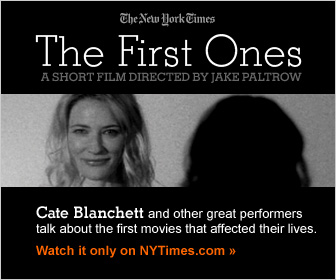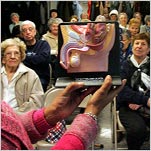A federal district judge in Brooklyn ruled yesterday that confidential marketing materials belonging to Eli Lilly & Company about its top-selling anti-psychotic drug Zyprexa must be returned to the company by a doctor and a lawyer who, the judge said, engaged in a scheme to leak them to the news media.
The documents were part of evidence provided by Lilly as part of a lawsuit filed by patients who claimed that side effects from Zyprexa caused excessive weight gain and diabetes.
In the 78-page decision, Judge Jack B. Weinstein of Federal District Court ordered Dr. David Egilman, a special expert for the plaintiffs, and James B. Gottstein, a lawyer in Alaska, to return the documents to Lilly.
A New York Times reporter, Alex Berenson, was given a copy of the documents, which showed that Lilly executives had kept information from doctors about Zyprexa’s links to obesity and higher blood sugar, a claim Lilly has denied. He wrote front-page articles based on the information.
Eli Lilly has now paid $1.2 billion to settle more than 28,000 cases from individuals who contended that they developed diabetes or other diseases from taking Zyprexa.
In the ruling, Judge Weinstein said Mr. Berenson obtained the documents after he discussed with Dr. Egilman ways to circumvent a protective order. Mr. Berenson put Dr. Egilman in touch with Mr. Gottstein, the judge said, so that they might “employ a pretense to subpoena the documents.” According to Judge Weinstein, the documents were sent to Mr. Gottstein via an expedited subpoena, which Lilly was unaware of. Mr. Gottstein then sent the papers to Mr. Berenson and others.
No other news organizations received the documents, the judge said, because Mr. Berenson told Mr. Gottstein that if the material was not delivered exclusively to him, the newspaper would not publish an article.
Mr. Berenson did not appear at an earlier hearing on the matter, where he was invited to testify. George Freeman, a lawyer for The New York Times Company, said that as a matter of “long-held principle,” the company believed it would be “inappropriate for any of our journalists voluntarily to testify about newsgathering methods.”
In a statement yesterday, Mr. Freeman said: “For the reasons set forth in our letter responding to Judge Weinstein’s invitation, we declined to testify voluntarily about our newsgathering methods. Unfortunately, that resulted in an opinion which vastly overstates Alex’s role in the release of the documents. We continue to believe that the articles we published were newsworthy and accurate, and we stand by them.”
Mr. Gottstein, who is president and chief executive of the Law Project for Psychiatric Rights, said, “I was just trying to follow the law.”
He said that a subpoena allowed him to adhere more closely to the protective order than if Dr. Egilman had given the documents directly to Mr. Berenson.
A spokeswoman for Eli Lilly, Marni Lemons, said: “Our adversaries carefully selected the documents to tell a story that they wanted to tell. These cherry-picked documents in no way reflect the strategies or activities of Eli Lilly & Company. Lilly feels vindicated because the judge issued an injunction that prohibits future wrongdoing by those who took the law into their own hands."
While the judge asked Mr. Gottstein and Dr. Egilman to return the documents, he did not ask Mr. Berenson to do so. Many of the documents are available on the Internet and the ruling does not ask that any newspaper or Web site take any action with regard to the papers.
Judge Weinstein reserved some harsh words for Mr. Berenson, whose conduct he called “reprehensible,” and for The Times, pointing out that unlike the case of the Pentagon Papers, in which classified government documents were given to a Times reporter, “here a reporter was deeply involved in the effort to illegally obtain the documents.”
The judge said that the documents’ disclosure posed “significant risk of harm to Lilly,” and that their “out of context” appearance in the news media might “lead to confusion in the patient community and undeserved reputational harm.”






